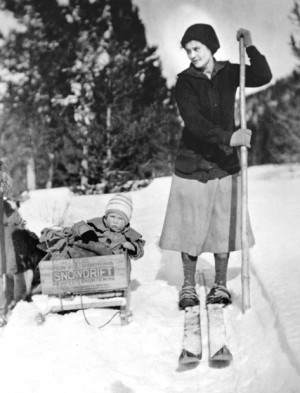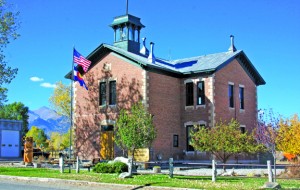By Candice Geier
Uplifting the Recession
Despite the recession, Colorado is still placing high in economic growth when compared to other states, according to CNBC and Forbes Magazine.
According to Forbes, Colorado is fourth in the nation for fostering businesses and economic growth.
“Even in this tough economy, Colorado has remained aggressive, disciplined and focused when it comes to supporting businesses and encouraging economic growth,” Governor Ritter said in a press release from the State House.
The press release stated that because of Colorado’s New Energy Economy, tax cuts for small businesses and investments in employee training have helped keep the state competitive.
According to CNBC, Colorado is third best place in the nation to do business. It took the second spot for quality of life and is the fourth friendliest state. Its economy came in at number eight.
Oil Shale Energy Production
The Bureau of Land Management has announced that Colorado will receive funding to research the potential to use oil shale as a source of energy.
The BLM is taking a methodical approach to weigh the costs and benefits of using oil shale as a natural energysource on a commercial scale with the Research, Development and Demonstration (RD&D) program, according to the BLM website.
BLM Director Bob Abbey said, “We need to support critical research to answer fundamental questions about the feasibility of the technologies, their impacts on the environment and local communities, and their use of water.”
An Interdisciplinary Review Team was created to review applicants consisting of Governors of Colorado, Utah, and Wyoming; the Department of Energy; and the Colorado School of Mines.
Two companies in Colorado were reviewed and accepted by the programs team: ExxonMobil Exploration, Co. and Natural Soda Holdings, Inc.
The companies will report vital information to BLM such as the costs, the infrastructure and time frame it takes to produce energy from the sedimentary rock.
More than half of all oil shale is in the U.S. and more than 70 percent is located in Colorado, Utah, and Wyoming, according to the website.
The Recovery and Reinvestment Act
The Recovery and Reinvestment Act (TARP) has created thousands of Colorado jobs, according to a White House report.
100 Recovery Act Projects that are Changing America, was released in September and noted seven recovery act programs in the state that created more than 500,000 jobs.
The Abound Solar Manufacturing Facility was granted the most money in Colorado, receiving $400 million in loan guarantees to make state of the art solar panels and expand their facility.
Other businesses receiving TARP funding include; UQM Technologies in Fredrick, which received $45 million to expand its electric vehicle propulsion plant and are expected to produce more than 80 propulsion units per day when the facility is operational.
The Energy Efficient Federal Center received $34.9 million which will go toward installing solar panels on Federal Buildings.
Denver Transportation received $28 million for the upgrade of the Denver Union Station system.
The Housing Construction for Seniors and the Disabled recieved $10 million to build a new housing unit employing solar energy with an expected 50 percent decrease in energy usage.
The Act provided $3 million for the Crossroad Interchange between Loveland and I-25 to be rebuilt with a round-about and walkway on each side.
The Crossroads Safehouse in Larimer County received $500 thousand and used the money to build 10 additional home units to shelter and protect battered women.
Since the report, other grants received because of the act have been awarded to Adams County Emergency Responders including the Governor’s Office of Information Technology.
The Adams County Emergency Responders Communication’s Center was awarded $12.1 million and plans to update its emergency system.
The Office of Information Technology received $3 million to broadband map and plan throughout the state. This, in addition to the $2.1 million they received in November 2009. The project is expected to continue for three more years and increase the amount of high-speed internet use.
Furthermore, according to the State House website, only five states fared better than Colorado in unemployment.
Small Businesses
During the final days of September, President Obama signed the State Small Business Jobs Act.
The bill includes the State Small Business Credit Initiative, expected to provide approximately $172 million in loans to help Colorado’s small business expand and produce more jobs.
The Colorado Credit Reserve Program was a template for the federal initiative and uses state funds to back small business borrowing.
The new act is effective immediately and created a federal nationwide $30 billion Small Business Lending Fund to support community banks.
The act also implemented tax cuts for small business, according to the White House Office of the Press Secretary.
New tax cuts include: Zero taxes on capital gains from key small business investments, Extension and expansion of small business’ ability to immediately expense capital investments, Extension of 50 percent of bonus depreciation, a new deduction of health insurance costs for the self- employed, tax relief and simplification for cell phone deductions, an increase in the deduction for entrepreneurs’ start-up expenses, a five year carry-back of general business credits, and limitations on penalties for errors in tax reporting that disproportionately affect small business.
Hunting
Private land is treasured in Colorado and hunters will have the opportunity to once again gain access to it during small game and pheasant seasons.
The U.S. Department of Agriculture granted Colorado $450,000 to continue the Small Game Walk-In Access Program that leases land from farmers and ranchers.
Small game hunters can gain access to 214,000 acres of private land located in 22 eastern counties during fall and winter seasons.
According to the U.S.D.A., landowners in 17 states have received the same incentive to improve habitat and access for public hunting, angling and wildlife watching.
Although hunters used to have to purchase a permit to use private land, they no longer have to and 9,600 hunters purchased licenses last year.
Information, such as land location, permit prices, safety and field dressing is available in around 800 locations throughout Colorado. A Walk-In Access Atlas can be retrieved online from the Division of Wildlife, sporting goods stores and general purpose stores.
All private lands that are available will be marked with signs and entry is not permitted if the landowner is harvesting. No horseback or motorized vehicles are permitted.
Candice Geier is an online journalist focusing on American laws. Geier is a Colorado native who believes that the people have a right to know. She has an associate’s degree in journalism and is currently working on her bachelor’s degree.

